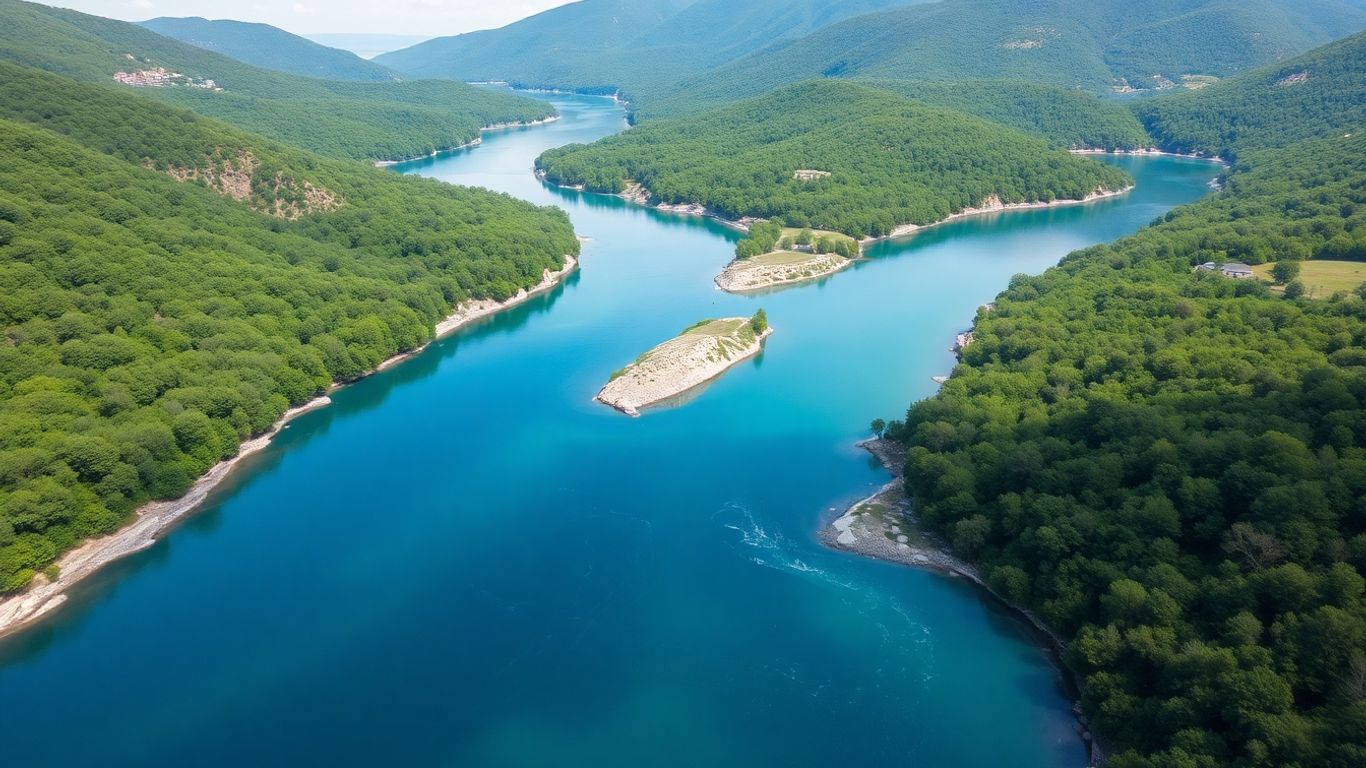Albania’s Vjosa Valley has been awarded UNESCO Biosphere Reserve status, highlighting its rich biodiversity and untouched river landscapes. However, as international recognition grows, so too do concerns about ongoing pollution and the effectiveness of conservation efforts on the ground.
Key Takeaways
- Vjosa River designated UNESCO Biosphere Reserve in September 2025.
- Pollution, industrial activity, and waste continue to threaten the river and its ecosystem.
- Local government pledges new investments in waste management and water treatment.
- Environmentalists warn that protections are not yet fully effective.
UNESCO Recognition: Hope Surrounded by Challenges
The elevation of the Vjosa Valley to UNESCO Biosphere Reserve status was celebrated as a milestone for environmentalists and the Albanian government. Stretching from Greece to the Adriatic Sea, the Vjosa is home to some of Europe’s rarest wildlife, including otters, Egyptian vultures, and hundreds of plant and animal species. Albania’s Environment Ministry points to this as a “boon” for the country’s ambitions in eco-tourism and EU integration.
Yet, despite global recognition, the river faces immediate threats. Open landfills scatter debris, sewage flows untreated into the water, and heavy machinery continues to extract gravel from its bed. These activities not only mar the landscape but have tangible impacts on river ecology and the communities who depend on it.
On-the-Ground Reality: Pollution Not Just an Eyesore
Even as a new visitors’ center takes shape in the valley, many activists note that persistent environmental issues undermine international accolades. Plastic waste and chemical runoff continue to contaminate the river, with animals and locals feeling the effects. Pollution from oil extraction and bitumen processing poses additional risks, while unregulated water diversion may threaten the river’s flow during critical dry months.
Table: Key Threats Facing the Vjosa River
| Threat | Impact |
|---|---|
| Dumped Waste | Riverbank degradation, plastic pollution |
| Sewage Discharge | Waterborne disease risk, habitat loss |
| Oil and Chemical Leaks | Toxicity, harm to wildlife |
| Gravel Extraction | River path alteration, bank erosion |
| Water Diversion | Reduced flow, drought risk |
Government Response: Funding and Management Plans
Albania’s environment minister acknowledges these problems and has outlined a 150 million euro plan to improve sewage treatment and close illegal landfills. The government’s long-term management strategy for the national park recognizes ongoing pollution and disruptive land use as significant issues, though local environmentalists are seeking more robust enforcement and faster action.
UNESCO’s designation is contingent on Albania following through with these commitments. The organization stresses that its listing is not a final solution but a framework for continual improvement—and will monitor whether Albania meets rigorous conservation criteria.
Activist Voices: ‘Protected Only on Paper?’
Experts and activists caution that international status alone cannot safeguard the Vjosa. Campaigners urge that without strict regulation and community involvement, the river will remain vulnerable to pollution, industrial extraction, and unsustainable development.
Some local organizers believe that new infrastructure, such as the visitors’ center, could amplify public pressure for rapid cleanup. Others warn that, unless existing threats are contained, the Vjosa risks being a “national park in name only.”
In summary, while the UNESCO designation marks a pivotal moment for conservation in Albania, the real test will be in addressing the river’s entrenched environmental issues, balancing increased tourism with ecological stewardship, and ensuring that paper protections translate into a genuine, lasting legacy for the wild Vjosa.
Further Reading
- In Albania’s new UNESCO site, environmental worries abound, Reuters.
- In Albania’s new UNESCO site, environmental worries abound, Reuters Connect.
- Troubled Waters: Albania’s Wild River ‘Protected Only on Paper’, Balkan Insight.






